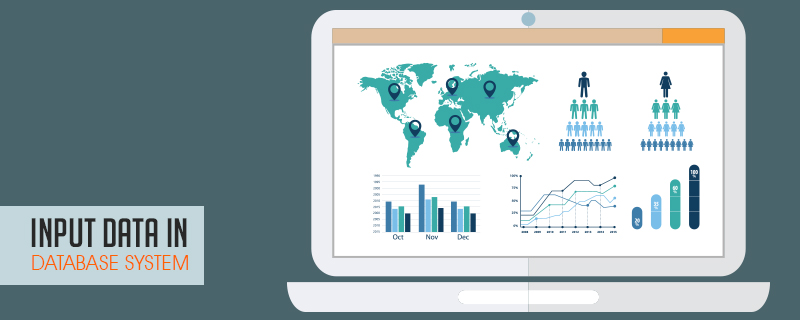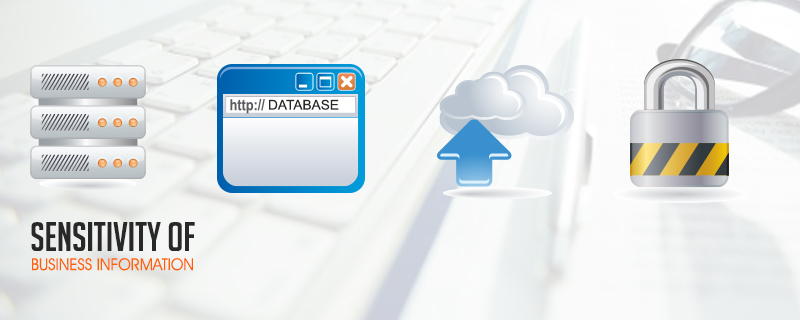Inside the Content
What is the importance of data for businesses?
More importantly, what does the information collected from all your business processes say about your business?
Here are some key questions it can answer:
- Is your business efficient?
- What are you wasting money on that could be better spent on something else?
- Who on your sales team are underperformers?
After incorporating a business, owners tend to get so busy doing business that they don’t try to understand the vital information that illustrates the performance of their business.
Basically, they don’t see the importance of database management systems in their businesses.
What Is Business Data and Its Importance?
Business data is information that businesses collect and store to make better decisions and key strategic initiatives.
This data can include everything from customer contact information to sales figures to product inventory levels.
By having access to this data, businesses can track their progress over time and make sure they are maximising their resources.
Are You Even Aware Of Your Business Information?

If you are unsure of your company’s basic information, you may be running a business that isn’t healthy. The data collected on your business gives you insight and awareness, alerting you to what needs immediate action.
Consistent data collection is vital to a business because it communicates the ongoing performance of that business.
The tracked performance helps to demonstrate where a business is currently at and where it will be positioned in the future, based on information gathered.
For this information to be gathered and known, your business needs to have a database system that manages information related to your various business functions.
Do The Majority Of Business Owners Even Actually Know What A Database Is?

More importantly, do business owners even understand why a database is needed?
Databases are collections of organised information that can easily be accessed, managed, and updated.
Database systems are essential to your business because they communicate information related to your sales transactions, product inventory, customer profiles, and marketing activities.
Without a centralised place to store all this information, you have no clue what is occurring within your business.
If you don’t know the precise details of your business, business owners make assumptions, and assumptions are typically based on opinions rather than facts.
Databases help make your business stronger, raising your ability to increase your profits. You have to know how your business processes are working. Are they working together to create a successful business, or are they working independently, not supporting each other?
The data of your business processes have to be known. You could be operating and making mistakes that are costing your business a lot of money. I will provide you with some examples of how this happens.
Take this potential scenario: You see that your business has high sales transactions, bringing in increased revenue, but you are losing money. You don’t understand why this is happening.
Reading through your business’ data, you see that you are selling too many low-end products and services. While these items bring in revenue, they have to be sold in mass quantities to affect your business positively.
You are a small business, not a large corporation, so you must focus on quality rather than quantity.
It’s important to inform your sales team that they need to focus on selling mid-level and high-end items. Sell less of these items but continue to triple the revenue you are currently making, leading to a profit.
Are you spending a lot of money on Facebook ads and Google ads but not seeing a good return on your investment? You have spent hundreds of dollars per month only to see a few leads come your way.
You are frustrated and want to know the problem because you can’t afford to keep spending this type of money and not seeing it bring results.
Lastly, reading through the data collected, you discover that your ads had no specific demographic targeted. Instead of the people you wanted as customers clicking on your ad, a range of people, who are unlikely to be your customer, clicked on your ads.
You correct your mistake, allowing you to reduce the money spent on ads while bringing in leads that can be converted into customers.
You notice that your business is having trouble bringing in high-end clients. Your services are specifically focused on this market, but they don’t even notice your business.
After looking through your data, you see that your pricing reflects that you are focused on lower-end clients. You unintentionally excluded your target consumers by trying to be affordable.
Your ideal customer wants experiences, not just convenience. You alter your pricing and begin to focus on communicating the value your business provides, instead of the benefits of your products and services.
Now, do you see why it is so important to know the data within your business? Just being knowledgeable about what is going on within your business can help you correct issues before they escalate.
Input Data In Database System

For business owners who input data within a database system, the systems that may be used include:
- Office Excel
- Constant Contact
- Office Access
- Google Drive
- Quickbooks
You can quickly input information and keep track of your daily activities, monitoring the progression of your business. These database systems are ideal for small operations.
As your business scales, managing human resources becomes more complex, especially with changing governmental policies. For instance, the S Pass minimum salary has been raised to SGD 3,150 from September 2024, with further adjustments scheduled.
As a business’ database system expands, it becomes wise to outsource the database’s management to a database administrator expert.
A DBA is an individual trained to effectively integrate your business’ processes within a manageable system, making it easier for a company to enter and track vital information regarding its day-to-day business operations.
As a big business, you have too many people and activities to keep track of. You have employees to manage and customers to support.
Your marketing activities are amplified, and large money transactions occur throughout the day. Quickbooks and Constant Contact will not be effective in this large-scale business operation.
They now have to be outsourced to professionals who specialise in handling this large volume of information.
Sensitivity Of Business Information

Another reason why database management becomes crucial as compliance with regulations, such as updated Employment Pass minimum salaries (SGD 5,600 from 2025) and COMPASS criteria, affects strategic business decisions.
For example, if your business were to have a data breach like Target experienced, would it be able to survive the hit and resulting criticism? Most likely not, so it is a must that a business hires a professional that can keep their data safe as it grows in size and complexity.
Imagine if your business were to have customers’ credit card information stolen. You don’t have a team in place to handle the PR related to that situation.
Your business is not large enough to handle the decrease in customers as they wait to see how the situation plays out. It is too fragile to absorb this type of blow. That is why you must secure your data.
Business Data Can Reveal Valuable Information to Enable Key Strategic Initiatives
Your business’ data is an indicator of how well your business is performing various functions of your business. Therefore, it is essential to have your business’ data well-maintained within a database system that can effectively position your business for continued growth.
You can accomplish this by being constantly aware of how well your business is functioning. Knowing the constant status of your data is a competitive advantage because you can understand your business and know how to enhance it.
If you aren’t doing so now, become aware of your business’ data so that you can know its actual health. Ensure that your business is positioned to be profitable.
FAQs
Why is data important to businesses?
- Data is important to businesses because it allows them to make key strategic initiatives for their operations. By collecting and analysing data, businesses can identify trends, patterns, and data-driven insights from their sales, marketing, and financial operations.
What are some examples of business data?
- Some examples are:
- Sales figures
- Employee numbers
- Company accounts
- Business correspondence
- Product inventories
How is data used in business?
- Data is used in business in a number of ways. It can be used to track employee performance, monitor customer behavior, and analyse market trends.


